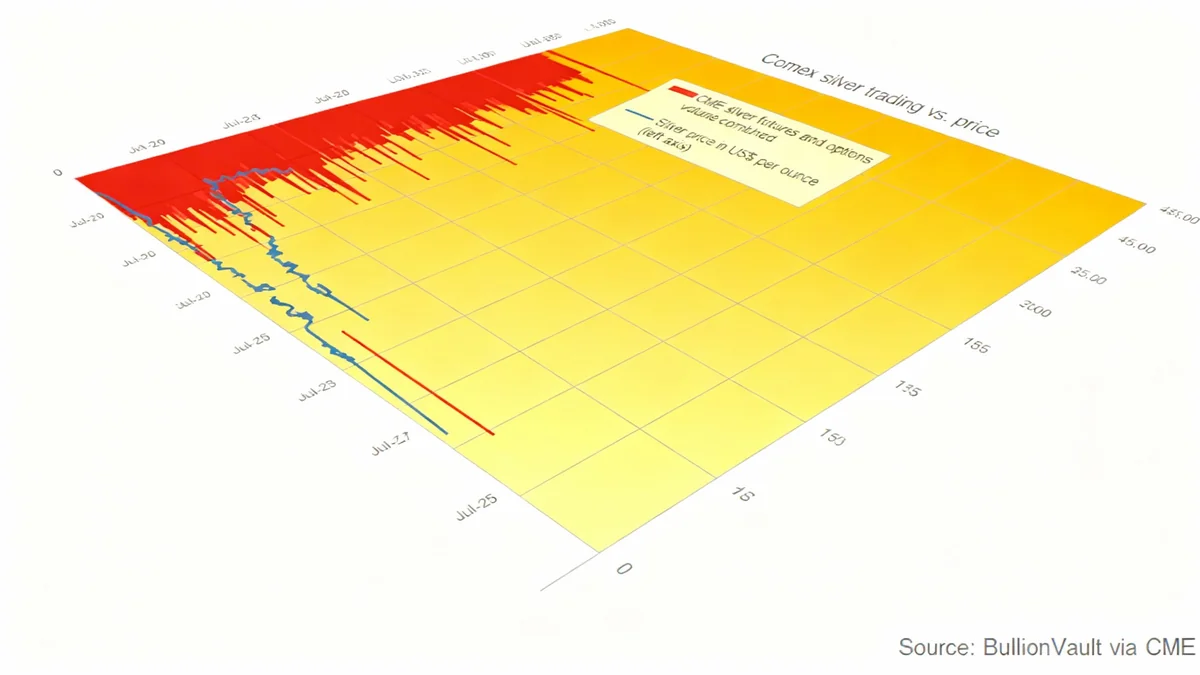The British Pound to Japanese Yen (GBP/JPY) currency pair has found temporary support around the 198.00 level, pausing a three-day period of decline. This stabilization comes as the Japanese Yen benefits from increased demand as a safe-haven asset, while the British Pound faces pressure from dovish commentary by a key Bank of England official.
The currency pair's movement reflects a complex interplay of international political events and differing monetary policy outlooks from the Bank of Japan and the Bank of England, suggesting the underlying bearish trend for GBP/JPY may persist.
Key Takeaways
- GBP/JPY Stabilizes: The currency pair's downward trend paused near the 198.00 mark during Asian trading sessions.
- Yen Strengthens: The Japanese Yen is experiencing higher demand due to its status as a safe-haven currency, a trend amplified by the recent United States government shutdown.
- Bank of Japan's Stance: The Bank of Japan has signaled its intention to continue moving towards policy normalization, which could involve future interest rate increases.
- Pound Weakens: The British Pound is under pressure following comments from Bank of England Deputy Governor Sarah Breeden, who advocated for potential interest rate cuts to avoid harming the economy.
Yen Gains Strength on Global Uncertainty
One of the primary drivers behind the recent movement in the GBP/JPY pair is the strengthening of the Japanese Yen. The Yen is traditionally viewed as a safe-haven asset, meaning investors tend to buy it during times of global economic or political instability.
A significant event contributing to this trend is the shutdown of the United States government. The closure, which began after lawmakers failed to pass a stopgap funding bill, has introduced a new layer of uncertainty into global financial markets. According to market analysts, such events often lead investors to move capital away from assets perceived as risky and into more stable currencies like the Yen.
Bank of Japan Signals Policy Shift
Adding to the Yen's strength is the latest guidance from the Bank of Japan (BoJ). The Summary of Opinions from the central bank's September meeting revealed a continued commitment to normalizing its monetary policy. This indicates that officials are preparing to move away from years of ultra-low interest rates.
The report stated that the BoJ intends to raise interest rates if Japan's economic growth and inflation figures align with its forecasts. This potential for higher rates makes the Yen more attractive to investors seeking better returns on their currency holdings.
What is Monetary Policy Normalization?
Monetary policy normalization is the process by which a central bank gradually winds down unconventional policies, such as near-zero interest rates or large-scale asset purchases, that were implemented during an economic crisis. The goal is to return to a more traditional policy stance as the economy recovers.
However, the BoJ's summary also noted some caution among officials. Concerns were raised about a potential economic slowdown resulting from tariffs imposed by the United States. Despite this, the consensus was that any negative impact from these tariffs would likely be temporary, allowing the bank to proceed with its normalization plans.
Pound Sterling Faces Headwinds from Bank of England
While the Yen has been gaining ground, the British Pound is facing its own set of challenges. Recent comments from Bank of England (BoE) Deputy Governor Sarah Breeden have placed downward pressure on the currency.
Speaking on Tuesday, Breeden presented a dovish outlook on interest rates, suggesting that the central bank should consider rate cuts. She argued that maintaining high interest rates for an extended period could pose a significant risk to the UK's economic prospects.
“Risks in holding policy too tight for too long could pull inflation below target,” Breeden stated, highlighting her concern that overly restrictive policy could stifle economic activity and push inflation below the central bank's official 2% goal.
This cautious stance is notable, as Breeden was one of the seven members of the Monetary Policy Committee (MPC) who voted to keep interest rates unchanged at 4% during the September meeting. Her recent comments signal a potential shift in thinking within the BoE, introducing the possibility of future rate cuts, which typically weakens a currency.
Interest Rates and Currency Value
A country's interest rates have a direct impact on the value of its currency. Higher interest rates tend to attract foreign investment, increasing demand for and the value of the currency. Conversely, lower interest rates can make a currency less attractive, often causing its value to fall.
Outlook for the GBP/JPY Pair
The current situation presents a clear divergence between the monetary policies of Japan and the United Kingdom. The Bank of Japan is leaning towards tightening its policy by raising rates, which is supportive of the Yen. In contrast, key officials at the Bank of England are beginning to discuss the need for loosening policy by cutting rates, which is negative for the Pound.
This fundamental difference in central bank direction is a primary reason why the outlook for the GBP/JPY pair remains bearish, despite the temporary pause at the 198.00 level. Unless there is a significant change in economic data or central bank communication, the path of least resistance for the pair appears to be downwards.
Traders and investors will be closely watching upcoming economic releases from both countries, as well as any further developments regarding the U.S. government shutdown, to gauge the future direction of the currency pair.
Understanding the Japanese Yen
The Japanese Yen is one of the most traded currencies in the world. Its value is influenced by several key factors:
- Economic Performance: The overall health of the Japanese economy plays a crucial role.
- Bank of Japan Policy: As the central bank, the BoJ's decisions on interest rates and other monetary tools are a primary driver. For years, its ultra-loose policy kept the Yen weak, but the recent shift towards normalization has provided support.
- Bond Yield Differentials: The difference between the interest rates on Japanese government bonds and U.S. Treasury bonds is closely watched. A wider gap in favor of U.S. bonds tends to strengthen the dollar against the Yen, and vice versa.
- Risk Sentiment: As a safe-haven currency, the Yen often strengthens during periods of global market stress as investors seek security. In contrast, it may weaken when investor confidence is high and they are seeking higher returns in riskier assets.





